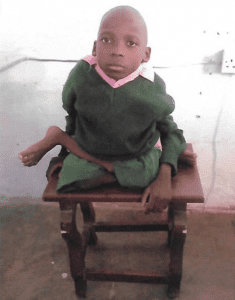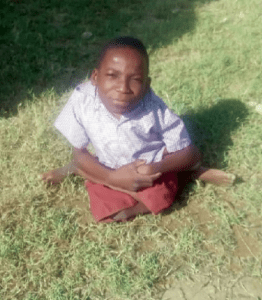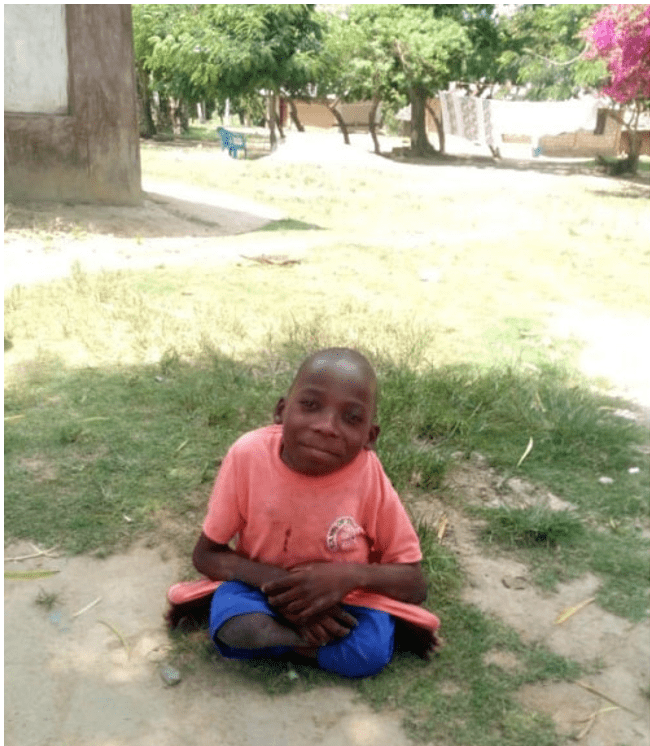Philip’s Journey Toward Self-Acceptance
Posted on October 7, 2022
Beliefs, Child, disability, education, Health, International, marginalized, stigma, vulnerable
Philip has always had a curious spirit and a longing to learn about the world around him. Although school helped answer many of Philip’s questions, there was one to which he could never seem to find an answer: why was he born with cerebral palsy? This question disturbed Philip for many years. Fortunately, over time, Kupenda’s support and counseling helped Philip come to peace with his condition and begin to celebrate his life and many abilities.
A Naturally Inquisitive Mind
Although Philip has always been eager to learn, his family’s poverty prevented him from attending school. His father was unemployed because he was sick, and his mother was unable to work, as she had to care for Philip and his five siblings. Thankfully, in the midst of such trying times, Kupenda was able to assist Philip’s family in paying for his school fees by connecting him to a sponsor.
School Success

Philip wearing his uniform
At just $30 per month, the sponsor’s donations enabled Philip to begin attend the Kizurini Primary School where his teachers quickly took note of his natural intelligence and passion for learning. He consistently exceeded their expectations in math, science, English, and Kiswahili.
A Journey to Self-Acceptance
Despite his progress at school, Philip’s disability often caused him to be overcome with frustration and shame. Often, these frustrations were directed towards his parents, whom Philip blamed for his disability. He felt as though they might have been able to do more to prevent it if they had only tried.
Loice Maluki, Kupenda’s Kenyan Project Officer and Philip’s counselor said,
“Philip was blaming the parents because he was viewing himself as different from the others. He would want to just walk like the other children, play with ease like the other children, but when he looked at himself, he [felt bad]. He went even further to ask his dad and his mom why.”
Fortunately, guidance and counseling from Kupenda’s Kenyan staff and his school teachers eventually began to help Philip. Loice said,
“After several counseling sessions with [our staff and] the class teachers, he started to accept himself.”
A Role-Model’s Influence

Philip at age 13
Another significant factor in Philip’s self-acceptance was his relationship with Benedette Kapkuot, his school’s Deputy Head Teacher. Although Mr. Kapkuot has a disability which prevents him from walking, he completed his schooling and went on to gain employment and excel professionally as a leader in the education field. When Philip saw Mr. Kapkuot’s success despite his disability, he started to believe that he too could lead a fulfilling life.
Loice said,
“Through counseling and interacting with the school Deputy Head Teacher, who [also] has a physical disability, [Philip] has accepted himself. Nowadays he is happy and focused on his academics.”
When we support children like Philip in accessing school and counseling, their lives are changed forever. These kinds of services give students with disabilities a community of friends, a safe environment to learn, and role models, like Benedette, who help children like Philip develop confidence that enriches their lives for years to come.
Want to keep updated on Kupenda’s work?
You can follow us on Facebook, Instagram, LinkedIn, and Twitter.
And please also sign up for our monthly newsletter and updates here.
If you’re interested in supporting a child like Philip, head over to our sponsorship page to learn about how you can make a difference for just $30 / month.



Leave a Reply